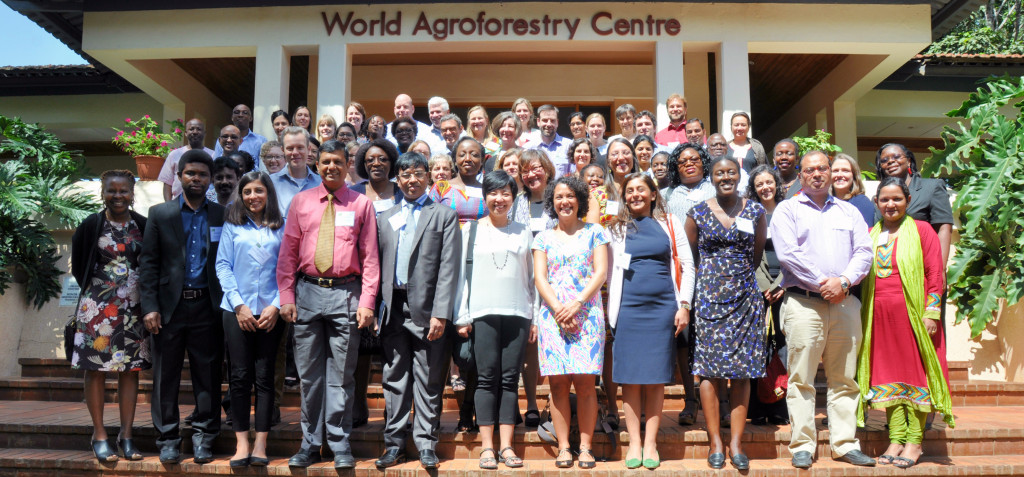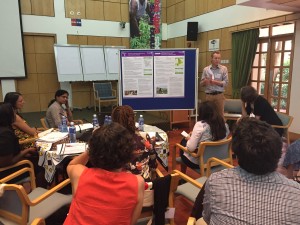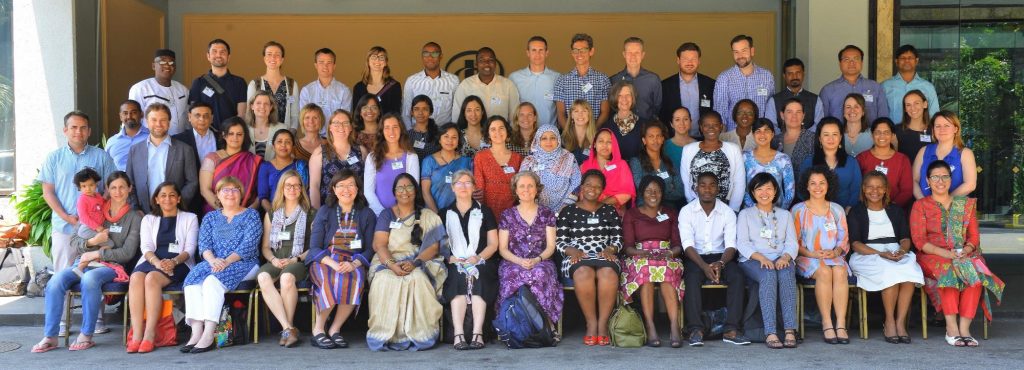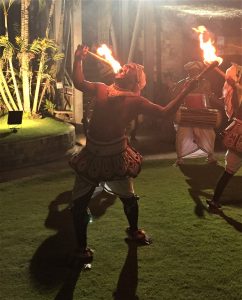GAAP2 Inception Workshop | GAAP2 Midterm Workshop
GAAP2 Inception Workshop
On January 27-29 2016, the IFPRI-led Gender, Agriculture and Assets Project held an inception workshop to kick-off its second phase (GAAP2). The workshop was organized in collaboration with AWARD at the beautiful World Agroforestry Center (ICRAF) campus in Nairobi, Kenya. About 60 people participated in the workshop, including the GAAP2 core team and partners, the GAAP2 External Advisory Committee (EAC) and most importantly representatives from projects that have been short-listed to be part of GAAP2.
Supported by the Bill & Melinda Gates Foundation (BMGF), the US Agency for International Development (USAID) and the CGIAR Research Program on Agriculture for Nutrition and Health (A4NH), with the participation of the CGIAR Research Program on Policies, Institutions and Markets (PIM), GAAP2 aims to develop project-level indicators for measuring women’s empowerment and to identify the most effective strategies that agricultural development projects can use to empower women. The workshop was the first opportunity for members of the GAAP2 community to convene and get to know each other while achieving the following objectives:
- Develop a shared understanding of the overall initiative, its objectives, and modalities
- Learn about measures of women’s empowerment, particularly the Women’s Empowerment in Agriculture Index (WEAI) and their uses in development programming.
- Develop components of a project-level WEAI (pro-WEAI) that can be used for assessing the impact of different types of agricultural development projects on women’s empowerment
- Lay the foundation for a GAAP2 Community of Practice (CoP) and develop outreach strategies for engaging with projects that are not directly included in the GAAP2 portfolio
- Review the GAAP2 timeline and discuss how individual pro-WEAI pilots fit into that timeline and how these can be used to identify strategies that work to empower women
Getting to know the WEAI
The GAAP2 core team presented the WEAI and its modifications (the Abbreviated WEAI or A-WEAI). The presentations focused on the rationale behind the creation of the index, its strengths and weaknesses and how it has been applied so far. The next stage of the WEAI will be the development of the pro-WEAI which will be implemented by the GAAP2 projects and the integration of the pro-WEAI into the projects’ impact assessment plans.
GAAP2 projects
Projects teams presented their interventions and proposed impact assessment strategies in a poster session - the GAAP2 portfolio has a diverse mix of projects ranging from livestock interventions to home gardens to financial inclusion programs and nutrition-sensitive agriculture extension programs. This was followed by a trivia contest about the information presented with exciting prizes (chocolates and coffee) for those with the highest points.
Group work to develop the pro-WEAI
The second day of the workshop was dedicated to developing the pro-WEAI. The group was divided first according to project themes (livestock, crops, income, nutrition) and then dimensions of women’s empowerment (access and use to information, individual empowerment, intrahousehold dynamics, physical mobility, empowerment with respect to nutrition). The purpose of the group work was to (a) propose additions or modifications to the existing A-WEAI module and (b) brainstorm over potential add-on modules to the A-WEAI. The group sessions resulted in some great ideas which will be used by the GAAP2 core team to develop survey modules for the pro-WEAI.
Community of practice
An important feature of GAAP2 is the CoP which will allow members of GAAP2 to communicate and collaborate with each other throughout the duration of the project. In addition to the GAAP2 CoP, a larger community will be created for those interested in following the project and using the pro-WEAI in their work.
Networking
There were many opportunities for participants to get to know each over the course of the workshop. Project teams not only met each other and learnt about their respective projects, but also got introduced to the members of the GAAP2 team who will support the projects with their research.
Resources from the workshop
Workshop agenda [PDF, 705KB]
Workshop summary report [PDF, 1.31MB]
Recorded sessions
- Panel discussion on women's empowerment - what works?
- Lessons from the Women's Empowerment in Agriculture Index (WEAI)
- What is the A-WEAI?
- Building a WEAI for project use: Overview of GAAP2 for pro-WEAI
Presentation slides
- Introduction and objectives of GAAP2
- Welcome and agenda
- What's measured, matters: Lessons from the WEAI
- The Abbreviated WEAI (A-WEAI)
- Building a WEAI for project use: Overview of GAAP2 for pro-WEAI
- Timeline, next steps and the ToC
- GAAP2 Community of Practice
A-WEAI questionnaire and manual
GAAP2 Midterm Workshop
The Gender, Agriculture, and Assets Project Phase Two (GAAP2) aims to develop an index to measure women’s empowerment in agricultural development projects. This index builds on the Women’s Empowerment in Agriculture Index (WEAI), which was created for large-scale agricultural development programs. The project-level WEAI will be tailored to diagnose disempowerment through indicators relevant to specific, shorter-term projects to improve project design, monitoring, and evaluation. A midterm workshop on March 9-11, 2017 in Colombo, Sri Lanka, co-organized by the International Water Management Institute (IWMI), reviewed progress on the quantitative and qualitative studies being undertaken by 15 agricultural development projects.
The three-day workshop provided an opportunity for members of the GAAP2 community to discuss their experiences and challenges implementing and analyzing the project-level WEAI (pro-WEAI) research instruments, build community, and plan the next steps for the GAAP2 project. The workshop participants set out to address the following objectives:
- Discuss and learn from the quantitative and qualitative research to date for the GAAP2 project to develop strategies to strengthen projects’ impact on women’s empowerment and improve the pro-WEAI research instruments.
- Build and strengthen the GAAP2 community through sharing information, supporting each other in improving project implementation, and identifying opportunities for collaborative networking and learning at and beyond the workshop.
Workshop sessions delved into topics such as quantitative research, qualitative research, project implementation, region-specific challenges, and the next steps for creating a project-level WEAI. The workshop also allowed for constant discussion and networking, from small group discussions in each session to an evening reception complete with Sri Lankan dancing and fire eating.
Empowerment scores from the projects
In the first session, representatives from the GAAP2 projects shared results from the field. Six projects that have already collected baseline survey data calculated the abbreviated WEAI (A-WEAI), a shorter version of the WEAI used for preliminary analyses. Most projects found that group membership, workload, and access to credit contributed most strongly to disempowerment. These results prompted discussions about which indicators drive empowerment, the importance of context, and the potential for qualitative research to help understand the survey results.
The value of qualitative research
Representatives from projects that had already collected qualitative data shared their results and experiences. Qualitative researchers then led discussions about the importance of qualitative research and shared tips for success in the field. Qualitative research is challenging – it is time-consuming and requires special skill to frame and ask questions in real time. Thus, good qualitative work is expensive. Still, the group agreed that qualitative work is valuable for validating quantitative results, understanding empowerment in context, and anticipating barriers to program implementation, impact, and sustainability.
Improving project implementation in each region
On day two, project implementers led discussions about their experiences and challenges in the field. They highlighted the importance of well-trained enumerators with strong language skills, flexible funding sources, and timely communication between project implementers and researchers. Next, implementers met with researchers from their regions – West Africa, Eastern and Southern Africa, and South Asia – to discuss region-specific challenges. For instance, sampling polygamous households can be tricky because the order and age of wives can influence empowerment. The groups suggested that the pro-WEAI should be customizable by region.
Next steps for GAAP2 and the project-level WEAI
In the coming months, the GAAP2 projects will continue to collect and analyze quantitative and qualitative data about empowerment in agriculture. Meanwhile, the GAAP2 core team will use data and input from the projects to create and validate the pro-WEAI. We will keep you posted when the pro-WEAI is ready to be shared!
GAAP2 is supported by the Bill & Melinda Gates Foundation (BMGF), the US Agency for International Development (USAID), and the CGIAR Research Program on Agriculture for Nutrition and Health (A4NH), with the participation of the CGIAR Research Program on Policies, Institutions, and Markets (PIM).
Resources from the workshop
Additional resources




